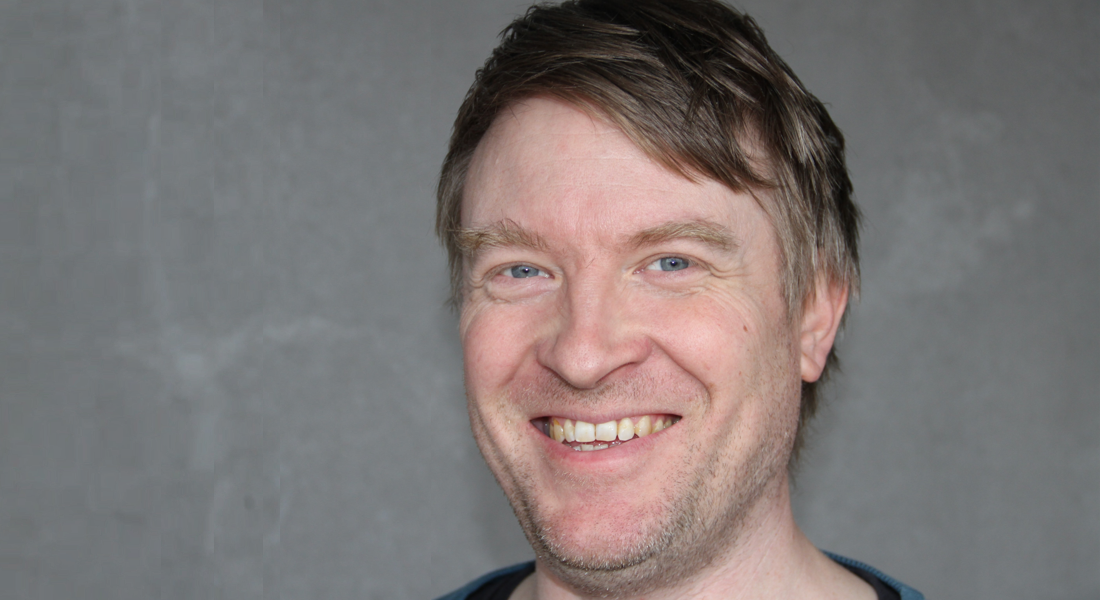New Associate Professor teaches computers to read your thoughts and feelings
Artificial intelligence can already find solutions, generate ideas, and recognize patterns from data on previous scenarios. But what if we could also teach computers to decode our thoughts and emotions? DIKU's new associate professor Tuukka Ruotsalo is working on personalizing artificial intelligence with scans of brain activity, physiology, and behavioural observations.

Artificial intelligence, machine learning, and neural networks are some of today's most popular technologies that appear in a wide range of systems that we use daily.
The algorithms in these systems are based on a large amount of data on specific topics, but they are usually not based on human emotions and behaviour. DIKU's new associate professor Tuukka Ruotsalo would like to change that.
- The goal of my research is to develop methods that make it possible to include human cognition in machine learning systems. We can improve machine learning systems significantly if we can make them understand how people think about the subject that the system is supposed to help with, Tuukka explains.
A good example is the so-called "recommender systems" which make recommendations to users – a core area of the Information Retrieval research field. The systems will usually suggest new things based on your previous choices and the feedback you have previously given. For example, you get suggestions for new movies on Netflix based on what you've seen before.
- If we also use data on human cognition and behaviour to build recommender systems – and in Information Retrieval in general – the systems will be able to provide better and more nuanced recommendations, says Tuukka.
Among other things, he has been involved in developing a new search engine with data from measurements of brain activity. He has also been involved in developing a new computer that forms images based on brain signals. A feature that can enhance computer programs used for creative work.
In the intersection between two fields
Tuukka Ruotsalo's research combines two key areas of computer science: Machine learning and Human-Computer Interaction. Within Human-Computer Interaction (HCI), the role of humans in computer systems is examined – a perspective that Tuukka believes is important to incorporate in machine learning.
- I think it is important to take human factors into account when designing new machine learning models. At the same time, it is important to know what happens to people when they use the systems, so we also make measurements of this, says Tuukka and continues:
- With my associate professorship at DIKU, I hope to bring the machine learning field and the HCI field closer together. There are excellent opportunities to do this at DIKU, which has both a strong Machine learning section and a Human Centered Computing section with many brilliant researchers.
Related News
Contact
Tuukka Ruotsalo
Professor
tr@di.ku.dk
Caroline Wistoft
Communications consultant
cawi@di.ku.dk
Bio
Tuukka completed his PhD at Aalto University, Finland, and used his Postdoc research period at the University of Helsinki, UC Berkeley, and Harvard University.
At the beginning of his appointment, Tuukka will spend part of his time leading the cognitive computing research group at the University of Helsinki, Finland, where he holds an Academy of Finland research fellowship.
At DIKU, Tuukka's research will focus on developing cognitive models combining machine learning and human-computer interaction. Tuukka develops models that can learn user intentions and preferences via measuring human cognition and use the measurements of cognition to develop new types of machine learning approaches.
His research utilizes measurements of cognition from a wide range of sources, including direct measurements of interaction behavior, as well as measurements of human physiology, and the brain. Read more about Tuukka’s work here.
